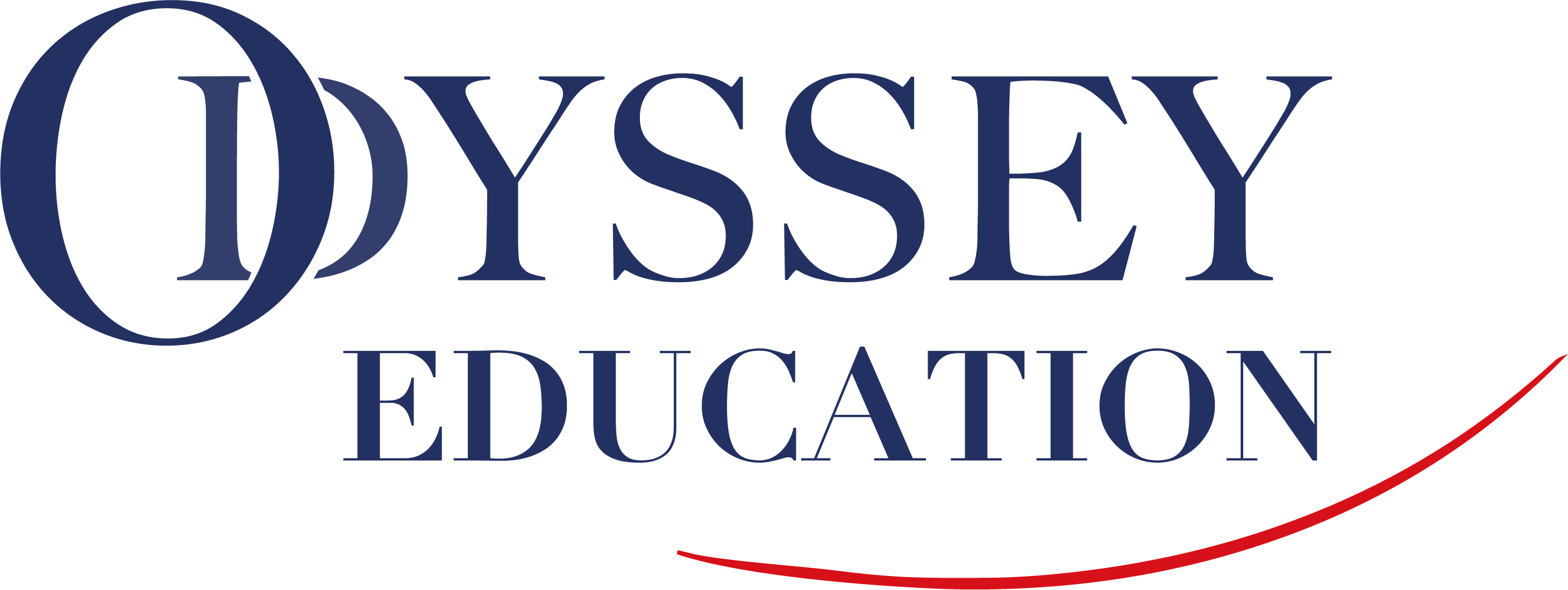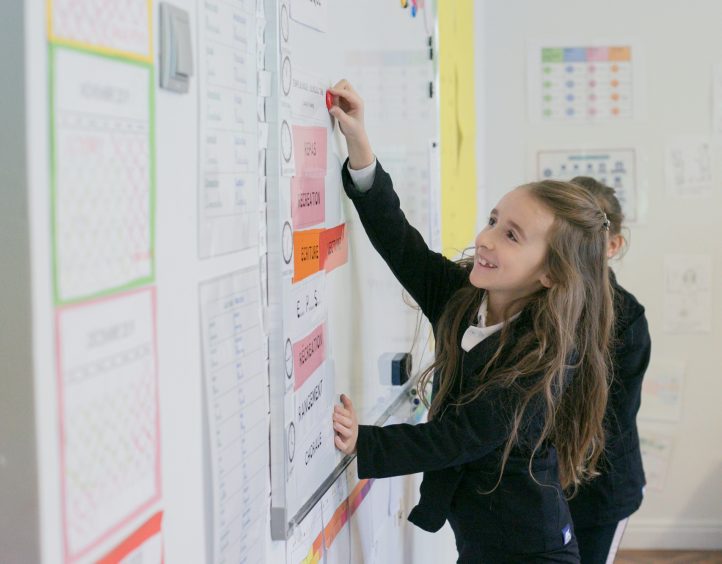Finding a school for the children? This is the challenge for families who move abroad. Indeed, it is not always easy to find a school in a new country. So how to choose without making a mistake? In recent years, French education abroad has been expanding. This is the case in Bucharest, Romania, where the very young International French School of Bucharest (EFI), a member of the Odyssey group, is establishing itself and promoting an active and multilingual education. Its director, David Heraud, confided to Femmexpat his commitment to the smooth growth of this community, which is attached to French-style excellence and driven by the values shared by the Odyssey group schools.
The rising French school
The choice, the French settled in Bucharest have it since 2019. The new EFI opens its doors to students from kindergarten to CM1. For the moment! Because its director, David Heraud, is confident that his school will grow. The numbers are indeed encouraging. The school now has 92 students, up from about 20 the first year. And as the French-speaking community is very dynamic in Romania, the school is likely to become even more attractive. 40% of the students are French or bi-nationals and there are fourteen different nationalities. “This is a real asset for the school,” emphasizes David Heraud.
Between the lines, it is possible to see the interest that David Heraud has for his young students. It must be said that he is the director but also teaches in a class and that he takes advantage of the benefits of small structures: to be as close as possible to the needs of the teachers “to accompany, always, the students in their success”. He prepares the next step for his students: “The follow-up of our students is one of the major challenges within the school.” Thus, the CM2 class will open next year to allow students already in CM1 this year to continue their studies.
Ensuring French-style academic excellence
The roadmap is clear for the young headmaster: “We must ensure the academic excellence that we will deliver to our students. This is why, in its first year of operation, the school filed an accreditation application with the Ministry of Education. Thanks to this process, “the National Education will certify the respect and conformity to the French school program” he explains. The school is private but has the status of a partner for the national education system like the 14 other schools in the Odyssey network.
Beyond the status and administrative procedures, ensuring academic excellence is also and above all a matter of recruitment. The director insists on the attention he pays to recruitment. The school needs teachers who are native French speakers but have the necessary diplomas.
David Heraud insists on the “professional gestures”. It is these professional gestures that guarantee a level of excellence but also on which all school pedagogy is based, both in terms of active pedagogy and language teaching. Guaranteeing a “multilingual bath” for the students is a challenge that the school director takes up with pleasure.
"Multilingualism is a real strength"
“Multilingualism is really a strength” for David Heraud. More than just learning a foreign language in a scholastic way, for him it is a “large-scale project” that ensures “the coexistence and synergy between the three languages”. The majority of instruction is in French because the curriculum is French, but it is supplemented by five hours of English per week, taught by native speakers. David insists on this point. For the teaching team, it is a question of creating the conditions so that the students “dare to express themselves in English”. Romanian classes in elementary school are also taught by two teachers, one of whom teaches this language as a foreign language, for non-native speakers, and the other is dedicated to students who already speak Romanian. In kindergarten, the groups are not separated so that the children are immersed in the language in a more natural way.
The teaching of languages at EFI is at the heart of the pedagogy implemented. “What we offer is effectively this hourly rate and this synergy between the different languages so that the students dare” he explains. He insists: “For me, the basis of our pedagogy is to make the students actors of their learning, so that they can dare to express themselves in the different languages.
Active students who dare!
The director of EFI Bucharest likes to remind us that the school’s project is based on strong values, shared by the entire team on site, but also by all the schools that are part of the Odyssey network.
The first is the idea of a “common project” between the classes, of “crossing the different themes that are tackled in class so that the students can truly work in multilingualism”. For him, the real challenge lies in decompartmentalizing languages from other learning. “The goal is not to do language for language’s sake, but to practice a study in the language. This gives the language, which is part of the student’s daily life, its rightful place in communication and learning,” he explains. This emphasis on language at the heart of the school’s pedagogy is a value shared by the schools in the Odyssey network.
The second value that the Odyssey network promotes is that of an active pedagogy. David Heraud clearly summarizes this pedagogical trend that he applies in his school: “Active pedagogy places the student at the center of learning. How can we, as teachers, make them actors, not just active? I do something, but by doing something I learn. It is really the distinction between doing and learning that is extremely important in active pedagogy. (…) It is really an education in participation and action. To do this is also to give meaning to learning”.
He thus instituted weekly class councils where students would collaborate on common projects, learn to manage conflicts that arose, or become a force of proposal. While the acquisition of skills is important, the school does not neglect the fact of forming tomorrow’s citizens. Another aspect that he values is student participation in the classroom. Not only do teachers ensure this, but they must also encourage exchanges between students. This is the only way that language learning becomes natural and gives the language its full communicative function. “The pedagogy that is used is really based on consultation and cooperation and it is the student who will co-construct with his peers the knowledge that will be delivered with the help of the teacher’s structuring” continues David Heraud.
Odyssey does not have a manual, but rather guidelines in a white paper and training sessions where experts share their knowledge with teachers in real-life situations. The teachers are trained and the school directors are also there because they are specialists in pedagogical issues, ready to accompany their colleagues in implementing this ambitious educational project.
David Heraud is inexhaustible on the new progressive pedagogy. He discusses the themes of automation as a learning process that allows knowledge to be reinvested, the common base of skills and culture, and teaching with kindness.
“Daring means having self-confidence. If we give our students confidence, we have already won everything,” he concludes. This is a roadmap that also has the merit of giving confidence to parents who are overwhelmed by their new expatriation!

